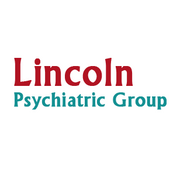Why Depression Is Such a Misunderstood Disorder

Good mental health is essential to our overall well-being, yet mood disorders are frequently stigmatized. People who suffer from depression are often told to “cheer up” or “quit being negative.” These types of comments are dismissive and display a clear lack of knowledge of the nature of the disorder. To understand why depression is one of the most misunderstood mental health problems, the experienced psychiatrists at the Lincoln Psychiatric Group in Nebraska provide some background information.
Depression Is Not the Same as “Sadness”
One of the main roadblocks to understanding this condition is the fact that the term depression is used colloquially to mean “feeling down” or “sad.” People use this word to describe the smallest disappointments, such as missing their favorite TV show, which takes away from its clinical meaning. In the psychiatric setting, depression refers to a defined mental disorder that results in long-term debilitating symptoms.
It Can Be Hard to Diagnose
 Depressive disorders fall into different classifications, and it can take time for a psychologist to make an accurate diagnosis. Determining the type of depression—major, dysthymic, bipolar—is important when formulating an effective treatment plan. During this process, the patient must still suffer and deal with their symptoms. Meanwhile, friends and family members may not understand why the diagnosis is taking so long and become skeptical that depression is the issue.
Depressive disorders fall into different classifications, and it can take time for a psychologist to make an accurate diagnosis. Determining the type of depression—major, dysthymic, bipolar—is important when formulating an effective treatment plan. During this process, the patient must still suffer and deal with their symptoms. Meanwhile, friends and family members may not understand why the diagnosis is taking so long and become skeptical that depression is the issue.
Treatment Is an Ongoing Process
The type of therapy prescribed will depend on the diagnosis and the person’s specific symptoms. Treatment may include psychotherapy, medications, or both. It takes time for some drugs to work, and others may need to be adjusted or changed depending on the individual’s reaction. All of this means that it’s a lengthy process, and the condition won’t go away immediately. Loved ones might believe this is an indication that something other than depression is the “true” cause of the person’s symptoms.
Depression is a serious but misunderstood mental health problem. If you’re suffering from the condition, the professionals at the Lincoln Psychiatry Group have the expertise and tools to get you feeling well again. To make an appointment, call (402) 476-7557 today. You can also visit their website to learn more about the services offered.
About the Business
Have a question? Ask the experts!
Send your question

